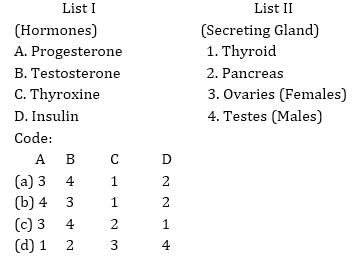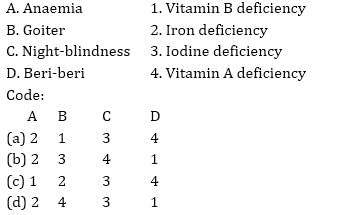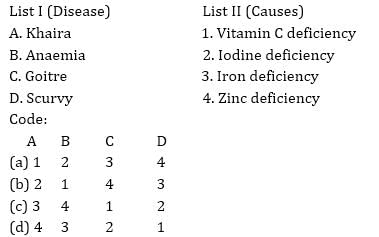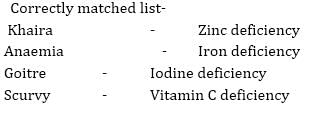CTET Practice Test: Science-4 - CTET & State TET MCQ
20 Questions MCQ Test - CTET Practice Test: Science-4
| 1 Crore+ students have signed up on EduRev. Have you? Download the App |
Which of the following is not a symptom of a heart attack?
Which of the following types of light are strongly absorbed by plants?
In which category of food is the most amount of calories per unit:-
The age of the tree, in years can be ascertained by:
Read the following statements in connection with red blood corpuscles and with the help, the code given below find out the correct answer?
1. They have iron
2. They provide red colour to the blood
3. They provide immunity against certain diseases
4. They are the carrier of oxygen in the blood
Code:
The major chemical compound found in human kidney stones is :
Match List I with List II and select the correct answer from the code given below the Lists:

Match the following and select the correct answer from the codes given below-

Match List-I with List-II and select the correct answer from the code given below the lists:

Which one of the following diseases is caused due to presence of excess arsenic in water?


















